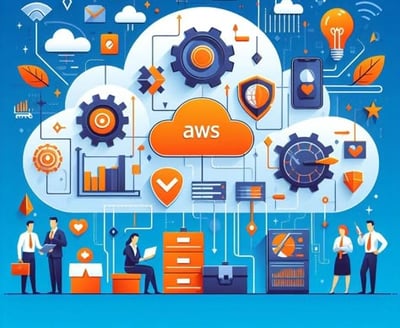
Start Earning Immediately After Mastering Cloud Computing
Cloud computing is the backbone of modern IT infrastructure. Once you complete the course, you can work with cloud platforms like AWS, Azure, or Google Cloud to build scalable solutions for companies and clients. From setting up virtual servers to managing enterprise-level deployments, cloud professionals are in high demand. Whether you become a cloud engineer, DevOps specialist, or a freelancer offering cloud services, the opportunities are immense. With skills in networking, storage, automation, and cloud security, you can start earning right after mastering the course.
What is Cloud Computing?
Cloud computing refers to the delivery of computing services like servers, storage, databases, networking, and software over the internet. It allows businesses to avoid upfront infrastructure costs and scale operations on demand. Cloud platforms such as Amazon Web Services (AWS), Microsoft Azure, and Google Cloud provide flexible and cost-efficient solutions. Whether it's hosting applications, data backup, or running AI workloads, cloud computing makes it possible. It's a must-have skill in today’s data-driven and remote-first tech landscape.
What You Will Learn in Our Cloud Computing Course
Cloud Computing is a booming field that powers everything from streaming platforms and mobile apps to enterprise software and e-commerce systems. After completing the course, you’ll be equipped to design, deploy, and manage scalable cloud solutions for businesses, startups, or tech firms. Whether you work as a freelancer, join a multinational IT company, or consult for cloud migration projects, the opportunities are vast. With expertise in platforms like AWS, Azure, and Google Cloud, along with automation and DevOps skills, you can start earning immediately. As companies across industries move to cloud infrastructure, skilled cloud professionals are in high demand—making this a secure, dynamic, and future-ready career path.
1.Introduction to Cloud Concepts


Understand cloud fundamentals, deployment models (public, private, hybrid), and service models like IaaS, PaaS, and SaaS. Build a strong foundation in how cloud services function and benefit businesses.




2. Working with Major Cloud Platforms
Get hands-on experience with AWS, Azure, and GCP. Learn to create virtual machines, manage storage, and use essential cloud services. This makes you job-ready for various cloud environments.
Learn how virtual machines, containers, and cloud networks work. Understand load balancers, firewalls, and VPNs. These are core components of cloud infrastructure.
3. Virtualization and Networking
4. DevOps and Automation


Master tools like Docker, Kubernetes, Jenkins, and Terraform. Automate cloud deployments and streamline development pipelines. DevOps integration makes you stand out in job markets.




5.Cloud Security and Compliance
Explore identity access management, data encryption, and compliance frameworks. Learn how to keep cloud environments secure and adhere to regulations.
Work on industry-based cloud projects. Deploy apps and services live. Learn cost management and scaling strategies. Get ready to build a professional cloud portfolio.
6. Real-Time Projects and Cloud Deployments
Jobs You Can Get After Completing a Cloud Computing Course
After completing a Cloud Computing course, you open the door to diverse and high-demand job roles across industries such as IT services, finance, healthcare, e-commerce, and startups. You can work as a Cloud Engineer, DevOps Engineer, Solutions Architect, or Cloud Consultant. These roles are crucial for businesses adopting cloud infrastructure to scale their operations securely and efficiently. With hands-on experience in platforms like AWS, Azure, or Google Cloud, and a strong grasp of automation, virtualization, and security, you’ll be equipped to manage modern digital systems. This course prepares you to work independently or within global tech teams, giving you access to a future-proof and well-paid career path.
1. Cloud Engineer


Design, deploy, and manage cloud environments. This role involves setting up infrastructure, optimizing costs, and ensuring availability.




2. DevOps Engineer
Bridge development and operations using automation and continuous integration tools. DevOps engineers are critical to agile businesses.
Design cloud architecture for businesses. Recommend solutions that meet performance and budget goals.
3. Cloud Solutions Architect
4. Site Reliability Engineer


Focus on system reliability and uptime. Ensure smooth cloud operations with monitoring and alerting tools.




5. Cloud Consultant
Advise businesses on moving to the cloud. Help them adopt the right strategies and technologies. Ideal for freelancing or agency roles.
Monitor and protect cloud platforms from threats. Enforce security best practices and ensure data integrity.
6. Cloud Security Analyst
Why Choose Us for Cloud Computing?
Our Cloud Computing course is designed to take you from zero to expert with real-world applications. Learn from certified cloud professionals through live labs, simulation environments, and case studies. Our course covers AWS, Azure, and GCP with in-depth modules on automation, security, and architecture. You’ll build a cloud portfolio and get guidance on certifications and job interviews. Whether you want to freelance, join a tech giant, or launch your own startup infrastructure, we’ll equip you for success from day one.
